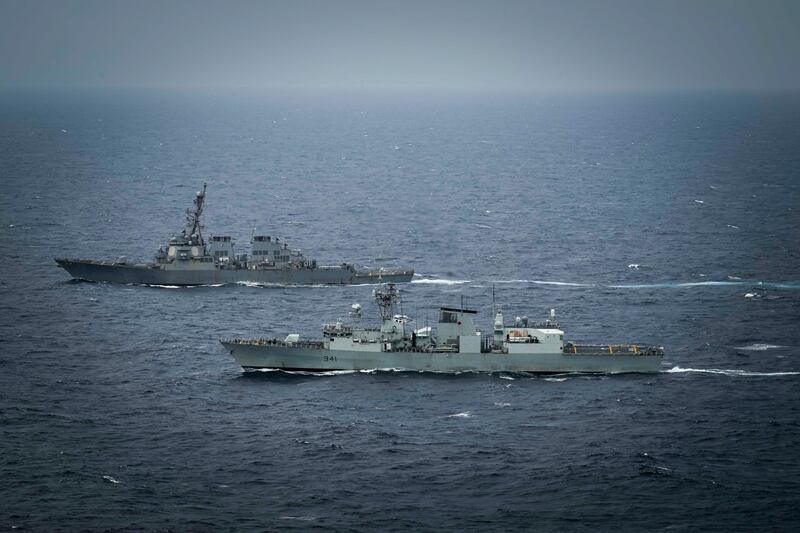Canadian naval vessel HMCS Ottawa successfully completed a joint exercise with U.S. Navy destroyer USS Higgins amid tension in the South China Sea, the Canadian Joint Operations Command said.
During the Jan. 8-11 drills, codenamed Noble Wolverine, both ships “navigated through the South China Sea’s international waters while conducting communications exercises, flight operations and anti-submarine warfare training,” the command announced on its feed on the X social media site on Sunday.
The Halifax-class frigate HMCS Ottawa also sailed near Scarborough Shoal, where the Chinese and Philippine coast guards have been engaged in a cat-and-mouse game for weeks.

The hotly disputed chain of reefs is inside the Philippines’ exclusive economic zone but under China’s de-facto control. Beijing has deployed its largest coast guard vessel, dubbed “The Monster” for its size, to the area since the beginning of the year, which Manila sees as “an act of intimidation, coercion and aggression.”
The passing Canadian warship was closely followed by a number of Chinese naval vessels, Canada’s CTV News reported.
Free and open Indo-Pacific
Noble Wolverine demonstrated the two countries’ “shared commitment to a free and open Indo-Pacific,” the U.S. 7th Fleet said in a statement, adding that such bilateral operations provide “valuable opportunities to train, exercise and develop tactical interoperability” across allied and partner navies in the region.
Besides the Arleigh Burke-class guided-missile destroyer USS Higgins, a U.S. Navy carrier strike group led by the Nimitz-class aircraft carrier Carl Vinson is also conducting routine exercises in the South China Sea.
The strike group includes the embarked Carrier Air Wing 2, cruiser USS Princeton and destroyers USS Sterett and USS William P Lawrence.
RELATED STORIES
Chinese navy shadows Canadian warship in East China Sea: media
China says ‘monster’ ship’s presence near Scarborough Shoal ‘fully justified’
South China Sea: 5 things to watch in 2025
China has not reacted to the U.S.-Canada exercise but it has in the past condemned what it sees as outsiders’ interference in the region.
Both Canada and the U.S. say they are Pacific nations and committed supporters of the rules-based international order.
Edited by Mike Firn.
